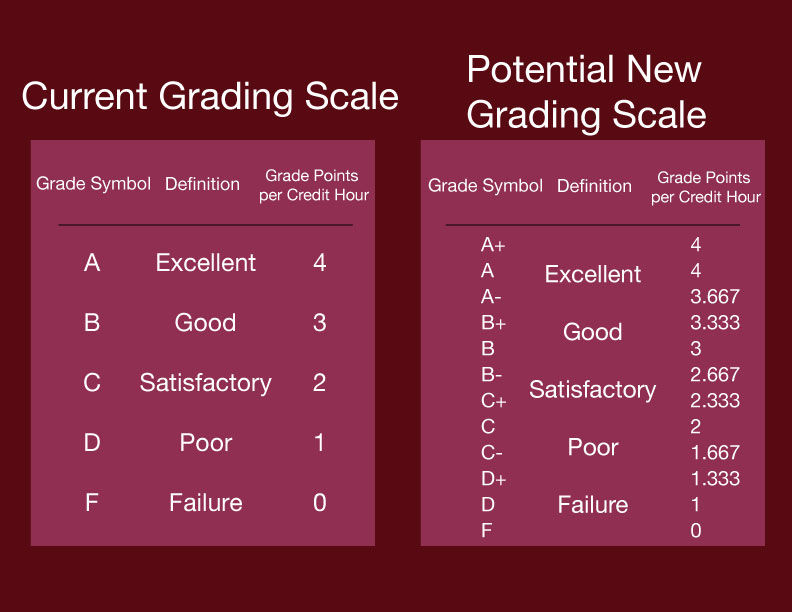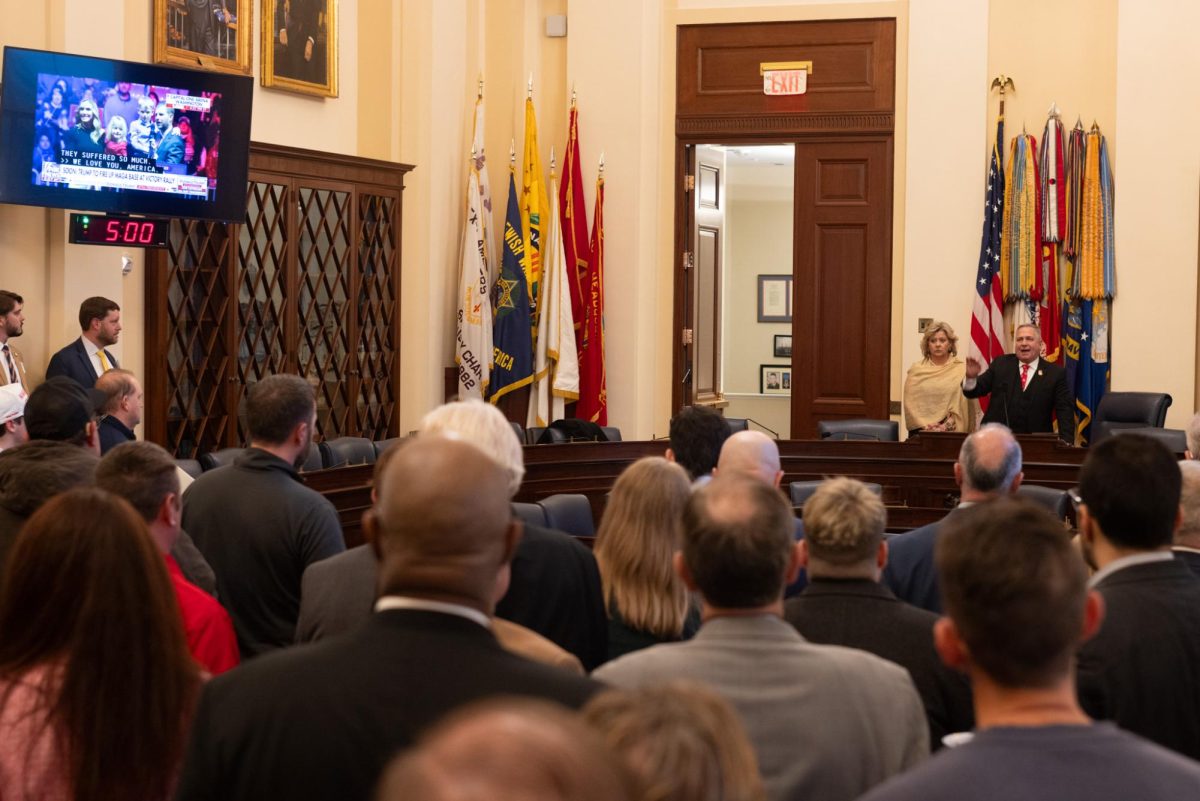How would a plus-minus grading system affect students?
April 11, 2016
The Faculty Senate will vote Tuesday on a proposal to implement a plus-minus grading system at SIUC.
If the senate passes the proposal, the campus may join the University of Illinois Urbana-Champaign, the University of Chicago, Western Illinois University and Northern Illinois University in having the grading scale. The proposal, which would be implemented in summer 2018, will move to the administration if passed Tuesday.
Stacey Sloboda, co-chair of Faculty Senate’s Undergraduate Education Policy committee, said the proposal — which was presented to the senate and the Graduate Council three years ago — would be a good change for the university.
Advertisement
“Not only would it put us more in keeping with what most other schools do and what graduate schools and employers expect to see when they look at a university transcript, it would also really help with communication,” Sloboda said. “Grades are really about communication between the faculty member and the students.”
Sloboda said the change would minimally affect the institution’s GPA as a whole, and the current grading system does little to separate higher achieving students from lower ones.
“There’s a pretty big difference between a student who got an 80 percent and a student who got a 89 percent, and right now our system has no way of reflecting that kind of nuance,” she said. “Right now it doesn’t really matter how you do on a final exam. Depending on how the course is structured, you’re going to get a B [in the class] no matter what. This system would encourage people to really do their best work.”
The university surveyed 306 faculty on SurveyMonkey from March 7 to April 8, Sloboda said. Of those who answered, more than 69 percent said they would use the new grading system if implemented. More than 23 percent said they would not, and about 6 percent said only for certain courses.
The survey then asked why those who answered no responded the way they did. Some wrote, “too complicated, extra work, doesn’t make much difference to GPA,” and “I see no value in making this change for the students in the job selection process.”
For those who said they would use the scale, some wrote, “I can evaluate students’ work in a more accurate way,” and “it might give students a better view of how they really did or it could give room to try to weddle a better grade.”
You can view the entire survey and responses here.
Advertisement*
Howard Davis, a junior from Chicago studying recreation, said the change would make it easier to understand how he’s doing in class.
“It will be a better indication of where we stand in class,” he said. “For example if I had a 73 in my course and that was a C-, it would give me a better understanding of how far I need to go to get up to a B or to a C+.”
Still, Davis think students should get a voice in the process.
“It’s our grades that’s going to be determined at the end of the day,” he said. “We should at least be able to have a say so in how we should be graded on our performance in class. I feel like it’s reasonable, but it’s unfair to decide it without at least a fair student vote.”
The Faculty Senate got an informal vote by a show of hands at an Undergraduate Student Government meeting, where about two-thirds of students were not in favor of the proposal.
Sloboda said student input is important, but at the end of the day, the faculty has to decide what’s best for them and the university.
“We have been here longer and will be here longer than any individual student, and so the decision really is up to the faculty,” she said. “The faculty really needs to do what they think is in the best interest of the university’s academic program.”
Vanessa Williams, a freshman from Smithfield studying agricultural education and mathematics education, said she agrees that these kind of decisions should be left to the faculty.
“Teachers need to have the ability to run their classroom the way that they want to, so it gives them that ability and it doesn’t take away something from them that they already have,” Williams said. “They should have their stand in how classrooms should be. I feel like they run the classroom and we’re just there to learn from it.”
Tierra Carpenter can be reached at tcarpenter@dailyegyptian.com or 618-536-3325.
Advertisement









